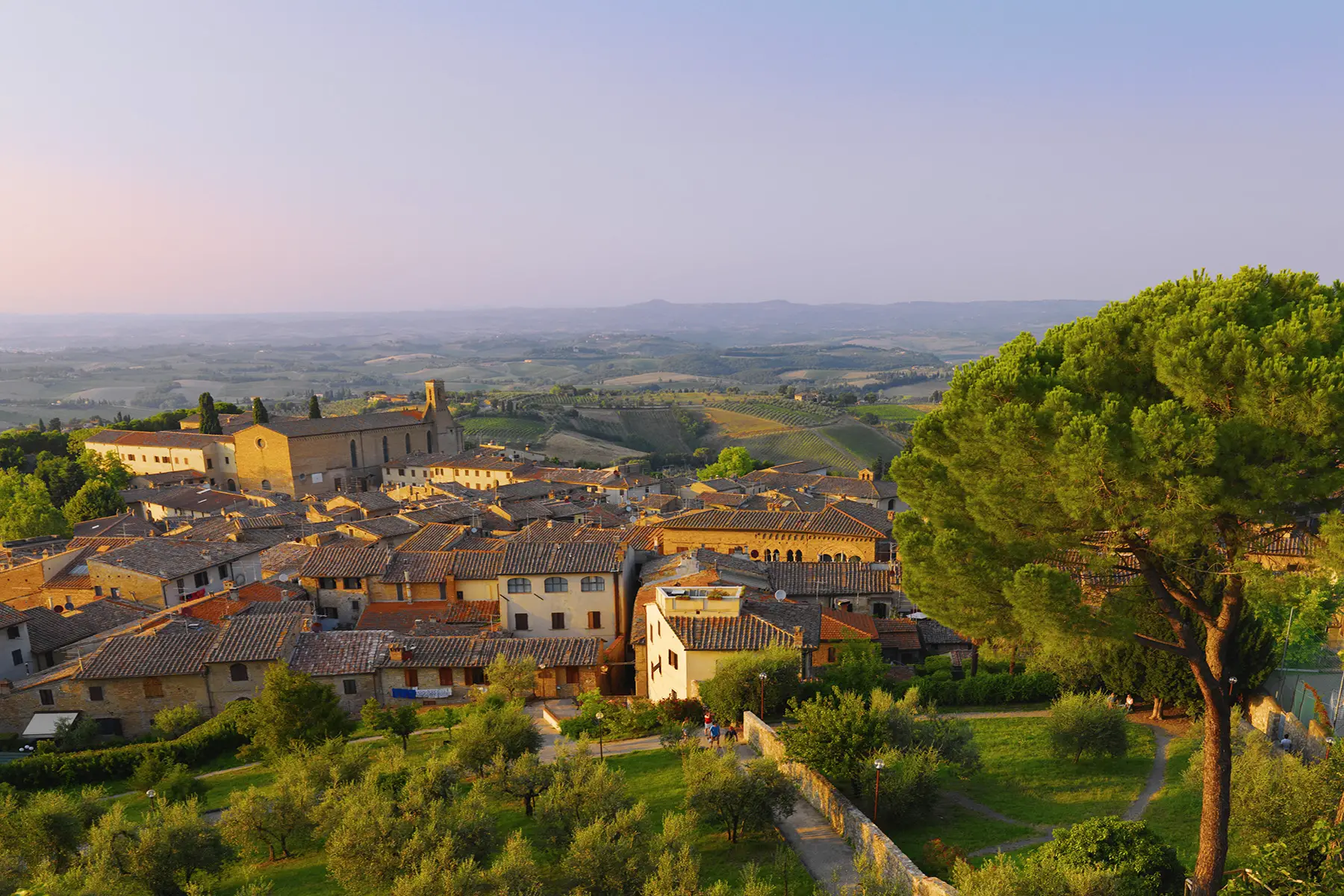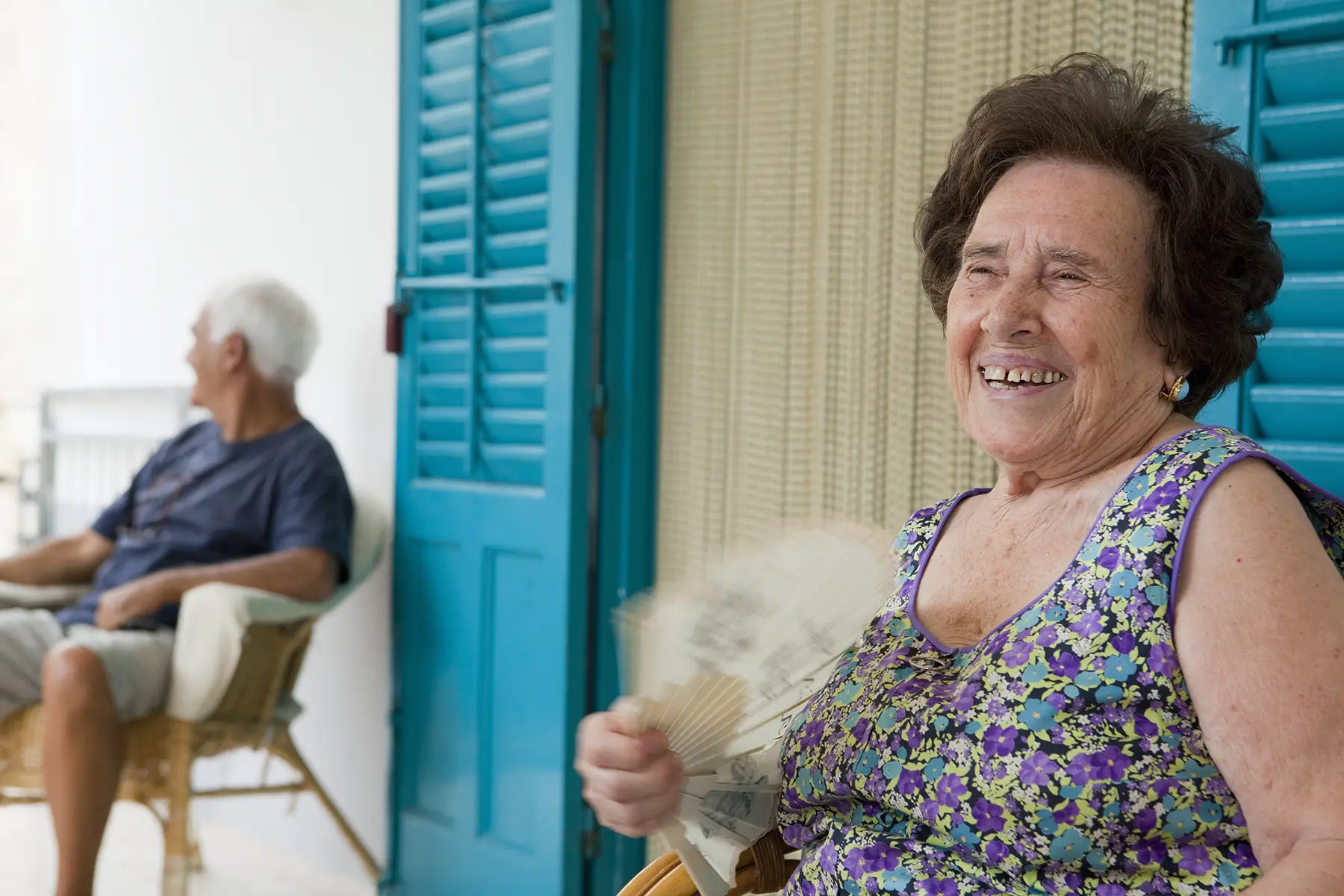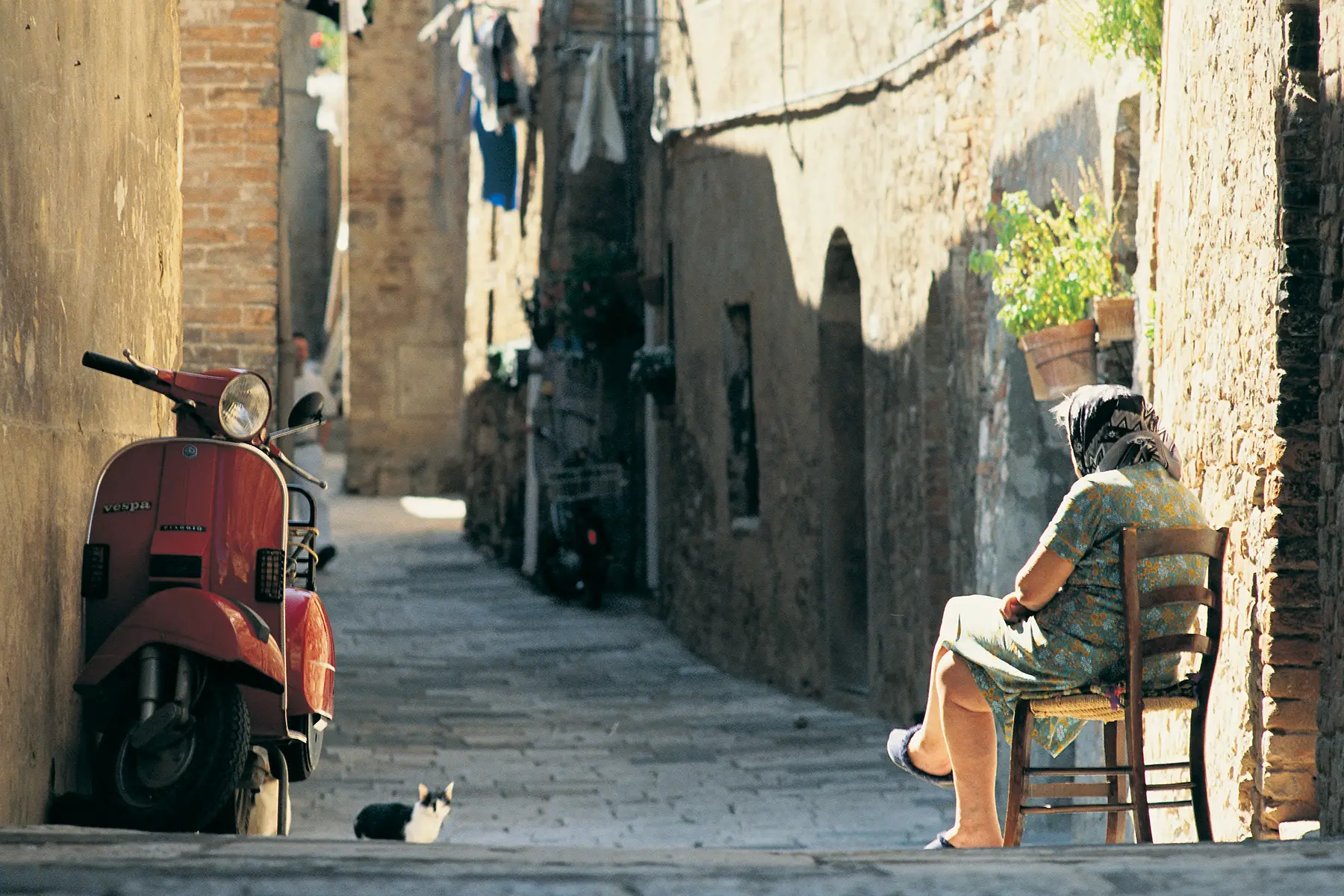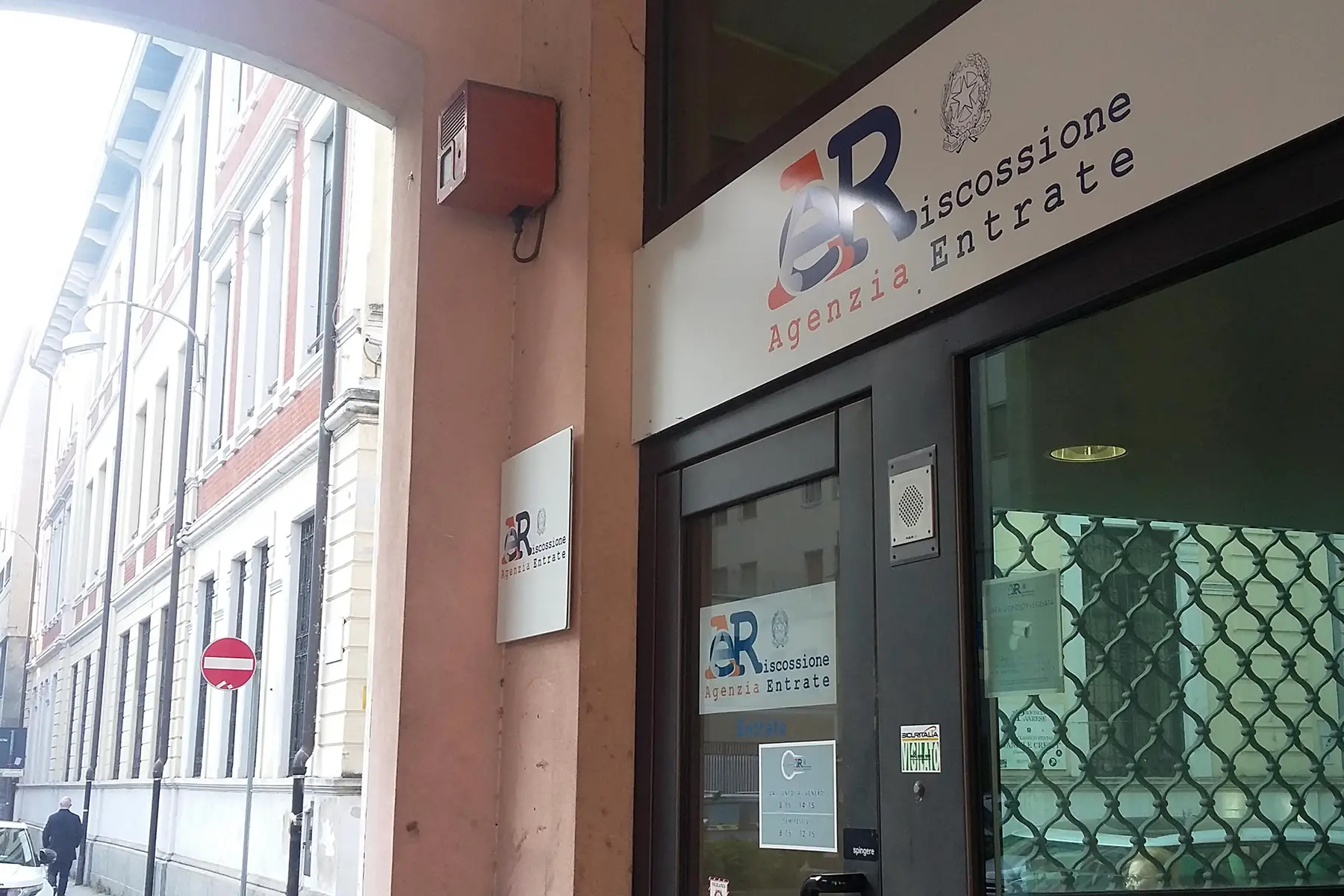Italy is a dream location to retire with its warm weather, fairytale landscapes, delicious cuisine, and a strong sense of community.
For the pensioner, the country also ticks the boxes for quality healthcare, access to public transport, and a much lower cost of living than the United States (US), the United Kingdom (UK), and many other EU member states.
However, if they do not speak Italian, mature expats may also feel frustrated by Italy’s bureaucracy and the language barrier.
Discover the pros and cons of retiring in Italy by exploring the following topics:
- Retire in Italy
- Who can retire in Italy?
- Who is eligible for a pension in Italy?
- Where are the best places for expats to retire in Italy?
- Services, organizations, and clubs for older expats retiring in Italy
- Wills and inheritance in Italy
- Healthcare for pensioners and those who retire in Italy
- Other support for pensioners in Italy
- Useful resources
SJB Global
Let SJB Global guide you on a range of topics including saving plans, retirement and pensions transfers, investments, and more. This financial adviser provides a remote service, so you can contact their experts at a time that suits you. Get in touch with SJB Global to find out how they could help you in your life abroad.
Retire in Italy
In 2023, around five million foreigners – or 8.8% – comprised the Italian population, according to Istat (i.e., the national statistics agency). It’s also a nation aging rapidly, with nearly 40% older than 65.

Fortunately, Italy’s many charms fit the ideal retirement fantasy perfectly. With its mild Mediterranean climate, world-renowned cuisine, and rich culture, the country ranks eighth worldwide (US News, 2022) for comfortably living out your golden years if your pension is adequate; around 21% of residents aged 65 and older are at risk of poverty.
Who can retire in Italy?
No age or nationality restrictions exist for those looking to retire in Italy.
However, the process is easier for citizens from the European Union (EU) or the European Free Trade Association (EFTA) countries who don’t need a visa to retire in Italy.
These individuals can also access Italy’s public healthcare system through the European Health Insurance Card (EHIC). Of course, registering with the local authorities is necessary, and tax implications may vary depending on your home country.
Italy’s elective residence visa and income requirements
Nationals of non-Schengen/EFTA countries will need an Italian residence visa. Perhaps the most convenient is the Elective Residency (Residenza Elettiva) visa. The permit is designed for expats with a stable income, such as pensioners, and is often called Italy’s ‘retiree visa,’ although it’s available to anyone over 18.
To be eligible for elective residency, you must demonstrate that you have sufficient funds to support yourself and your dependents during your stay in Italy (typically valid for one year). However, you can keep renewing it so long as you continue to meet the financial requirements.
The Ministry of Foreign Affairs and Cooperation (Ministero degli Affari Esteri e della Cooperazione Internazionale) explains the process with a handy visa tool on its website. You only need to type in your nationality, country of residence, and reason and length of stay.
Generally, you need to include the following documentation with your application form:
- Recent passport photos
- Valid passport or other travel document
- Proof of regular financial resources or from sources other than paid employment
- Proof of residence
Retirement age in Italy
In Italy, you hang up your hat (attaccare il cappello) at age 67, regardless of gender, and this official retirement age will only be reviewed again in 2026.
Who is eligible for a pension in Italy?
Foreign-born and local residents are eligible for state pensions (pensione di vecchiaia) if they have made social security contributions for at least 20 years. At 62, you can choose early retirement if you have contributed to social security for a minimum of 42 years.

The country’s demographics mean that pensions account for 16.1% of its GDP.
Pension payments are linked to social security contributions, the Italian GDP (across five years), and a transformation coefficient based on several factors, including age and probability of death. For example, the minimum monthly payout for people over 75 is around €600 (2023).
Italy’s pension system ranks 32nd out of 44 countries on the Mercer CFA Institute’s Global Pension Index. The country rates well on the adequacy of current pensions but places second from the bottom regarding the system’s sustainability.
Retirees in Italy may be eligible for several different pension options, including:
- Private pensions: Also called open funds, offered by banks and insurance companies and available to all workers, employed or self-employed
- Occupational pensions: Available to workers in specific industries and are sponsored by trade unions
- Disability and Survivor pensions: Depending on your particular circumstances, you may be eligible for these pensions too
How can you transfer an international pension to Italy when you retire?
It’s possible to transfer international pensions to Italy, especially when relocating from another EU country.
You begin by applying to the Italian Social Security Administration (Istituto Nazionale di Previdenza Sociale, INPS) and include documents such as your ID and pension statements.
The Italian authorities will process and forward your claim to your home country or previous country of residence. The process typically takes up to six months. However, the different pension ages in each EU state can affect your payout.
Pension transfer agreements
Italy also has several bilateral pension transfer agreements with non-EU states, and the INPS should be your first port of call.

UK nationals retiring in Italy may be able to consolidate their pensions through the Qualified Recognized Overseas Pension Scheme (QROPS), although there are several pros and cons.
It may also be worth seeking professional advice from independent financial experts specializing in advising clients on retiring abroad. These include Moving2Italy.
Moving2Italy
When relocating to Italy, get expert help from Moving2Italy on taxes, work permits, and setting up a business. They also provide personalized support for immigration, social security, and residence, helping you navigate your new life abroad. For assistance with fiscal and immigration matters, contact Moving2Italy.
Taxes on pensions
Taxes are one of life’s certainties, and they’re inevitable when you retire in Italy.
Pensions are taxed like personal income (imposta sul reddito delle persone fisiche, IPREF). However, the rates depend on your total earnings and residency status. On the plus side, you’ll be eligible for a tax credit, which varies according to your pension payout.
In recent years, a flat tax of 7% on foreign pensions has been available to those retiring to specific areas. These include municipalities with populations of 20,000 or less, for example, in:
- Abruzzo
- Basilicata
- Calabria
- Campania
- Molise
- Puglia
- Sardinia
- Sicily
However, several conditions exist, including around previous residency, and you’re not eligible for tax credits if you apply for the 7% flat tax rate.
Besides income, you will also have to pay property tax (in Italy or abroad), inheritance and gift tax, and municipal fees for waste removals.
Where are the best places for expats to retire in Italy?
Whether you prefer the tranquility of the countryside or the vibrant city life, Italy offers a diverse range of destinations that fulfill every expat’s retirement dreams.

Property prices and the cost of living will vary according to where you finally decide to live. But as a handy benchmark, average monthly household expenses were around €2,437 in 2022.
Each of the regions listed below has its pros and cons.
Lombardy
Istat says more than a million foreign-born inhabitants live in Lombardy, perhaps Italy’s most glamorous province.
Its vibrant cities, rich culture, and stunning landscapes make it an excellent option for retirees seeking a mix of urban amenities and natural beauty. The region is home to Milan (Milano), Italy’s financial and fashion capital, with a cosmopolitan lifestyle, quality healthcare, and cultural opportunities. More serene – but perhaps as expensive – is its picturesque lake region. Como and Garda have long been scenic retreats for relaxation and leisure activities.
The downside is the cost of living in Lombardy. According to the real estate portal, Immobiliare, the region is among Italy’s most expensive for real estate.
Tuscany
Some 400,000 expats make their homes under the Tuscan sun, according to Istat, with inquiries increasing by 30% in 2021.

The region ticks all the right boxes: rolling green hills, extensive vineyards, a history of art and culture, and well-connected airports.
Florence (Firenze), its capital, is also home to a thriving expat community with several retirement communities established around Tuscany in recent years.
Abruzzo
Abruzzo’s rolling landscape in southern central Italy resembles Tuscany but with more affordable housing.
Nature reserves cover about a third of the province, but because it straddles the central Apennines, you can also access charming cities and beautiful beaches. The region offers excellent public transportation to the country’s larger cities, with L’Aquila, its capital, just over an hour’s drive from Rome (Roma).
Piedmont
South of Switzerland and east of France lies Piedmont. It is centrally located, making it easy to reach the rest of Europe by road. The province offers quiet country living – with some of the continent’s best farmlands – and is famed for its slow food, white truffles, and world-renowned wines.
Moreover, the region is bounded by mountains on three sides, giving it a classically continental climate. In other words, summers are long and hot, and winters are cool but mild.
As of 2022, it is home to 410,000 foreign-born residents, according to Istat.
Sicily
The island paradise of Sicily has much going for it – diverse landscapes, rich history, delectable cuisine, and quality healthcare. Some 184,000 foreigners lived in Sicily as of 2022, Istat data shows.

It has actively marketed itself to mature internationals as young people migrate to the country’s bigger cities. Consequently, many Sicilian villages and towns have been selling homes for €1, provided you establish residence locally, investing time and money in renovating the property within a specified timeframe.
Overall, the region is home to Italy’s lowest costs of living. After neighboring Calabria and Molise, it also boasts the lowest property prices.
Weatherwise, Sicily has mild winters and hot summers, which have been getting even warmer due to climate change.
Services, organizations, and clubs for older expats retiring in Italy
As the Italians say, “he who finds a friend, finds a treasure” (Chi trova un amico, trova un tesoro). When you retire in Italy, there are plenty of opportunities to do just that with various local clubs and associations tailored to senior citizens: more than 3,700 social centers nationwide, with over four million members.
Club activities include tech training, health information drives, campaigns around healthy aging, social tourism events, and learning Italian, to name a few. These are often organized in collaboration with the Senior International Health Association (SIHA).
List of expat associations
Those who retire in Italy can also take advantage of several expat associations. Some of these include:
- International Women’s Forum Bologna (IWF): A non-profit founded in the capital of Emilia-Romagna, it organizes monthly social events for English-speaking women of all nationalities
- Association of British Expats in Italy: A Rome-based physical and virtual forum for all things Blighty
- Monteveccia English Book Club: Socialize over tea and biscuits, chatting about books
- Creative people in Florence: Promotes and supports contemporary arts in the Tuscan capital
- Indian Association of Northern Italy: Promotes Indian culture in and around Milan, organizes festivals and events, and supports networking activities
- Vlamingen in de Wereld: A non-profit organization for Flemish people who live and work abroad
- American Women’s Association of Rome (AWAR): Founded in 1995 for professionals, artists, business owners, and homemakers, with a discounted membership rate for people over the age of 65 years
- Retired Expats in Italy: A Facebook group where retirees in Italy can share ideas, network, or find friends
- Meetup Italy: The social platform hosting more than 70 groups
Wills and inheritance in Italy
When you retire in Italy, consider updating your will (testamento) to ensure your Italian estate is distributed according to your wishes. Without a valid will, your local assets will go to beneficiaries determined by Italian law, typically your spouse and children or the next closest family members.

An Italian notary must translate and authenticate a foreign will before it can be executed in Italy. Therefore, drawing up an Italian-based will could be more cost-effective and ensure a smoother probate process.
There are three types of Italian wills:
- Handwritten
- Formal
- Secret
You can easily compose a handwritten will, while a notary has to draft the formal will and read it aloud before witnesses. A secret testament remains undisclosed until the testator’s death and is usually protected by a lawyer.
How do you write a will in Italy?
You can start by appointing an Italian lawyer to draft the will, ensuring it complies with Italian law. Ideally, choose a specialist familiar with inheritance law in Italy and your original home country.
Furthermore, it is also best to involve an Italian accountant because of the inheritance tax. Your local lawyer may be able to recommend one.
Indeed, while you will need to follow the law on statutory entitlements to your spouse and children, you can freely allocate the rest. Of course, you can change your will as often as you want, but only the most recent will be considered valid.
What is the inheritance tax in Italy?
Inheritance taxes apply to the worldwide estate of any resident in Italy at the time of their death. The country has some of Europe’s lowest inheritance tax rates, ranging between 4% and 8%.
The tax-free allowance is up to €1 million, meaning most direct descendants do not need to pay inheritance or gift tax on the deceased estate. However, inheritance declarations must be submitted within six months of the benefactor’s death.
According to The Worldwide Estate and Inheritance Tax Guide 2023 (WEITG), the law provides specific rules for determining the taxable base for each transferred asset.
Healthcare for pensioners and those who retire in Italy
The country’s healthcare system operates a national health service (Servizio Sanitario Nazionale, SSN), providing universal coverage to all Italian citizens and legal residents.
The SSN supports doctor visits, hospital care, diagnostic tests, and prescription medications. It prioritizes preventive care and early diagnosis, promoting well-being among retirees.

Italy ranks highly for the quality and efficiency of its healthcare system, with only 1.8% of citizens having unmet medical needs, according to the European Commission. Apparently, its nation is also one of the healthiest in the world.
When you retire in Italy as an expat and establish residency, you’re entitled to the same healthcare benefits as Italian nationals.
How to access the healthcare system when you retire in Italy
For international retirees, enrolling in the SSN is essential for accessing public healthcare services. You’ll need your Italian tax identification number (codice fiscale) and proof of residency to register. Simply visit your local health authority (Azienda Sanitaria Locale, ASL) office to complete the registration process.
You’ll want to consider supplementing your public coverage with private health insurance, as it gives you access to private hospitals and specialists with shorter waiting times. It can also offer peace of mind for pensioners seeking more extensive medical services.
Private health insurance companies in Italy
Companies providing international-friendly health insurance plans in Italy include:
Cigna Global
Are you 60+ and looking for private international health insurance? Speak to the healthcare professionals at Cigna Global today and find a policy that’s right for you. They have a global network of doctors, specialists, therapists, and more with tailor-made coverage for seniors. Before starting a new chapter of your life, get peace of mind with Cigna Global.
Other support for pensioners in Italy
You can enjoy several other benefits when you retire in Italy.
Public transport discounts are widely available to seniors. For example, a Silver Card (Carta d’Argento) is available to anyone over 60. This train pass will get you a 15% discount on most Italian train tickets and 10% off couchette or sleeper fares.
In addition, you get access to the Euro Rail system with 25% off travel between European countries. Some trains, such as the Frecce, Intercity, and Intercity Night trains within Italy, offer seniors a 50% discount.
Many hotels in Italy also offer pensioners around 10% discount on their best rates.
You’ll also enjoy special deals or free entry across the country’s museums and sights. However, since their management isn’t centralized, rules can differ significantly between cities. In some cases, discounts are time-specific.
A language tip is to use the terms anziano (for men), anziana (for women), or pensionato (retiree) when inquiring about discounts. You may also need to present some form of local identification to prove your age.
Useful resources
- Istituto Nazionale di Previdenza Sociale (INPS) – the official website for the Italian Social Security Administration
- Casa di Riposo – a directory of care homes in Italy (in Italian)
- Senior Italia – a federation of associations for senior citizens (in Italian)






